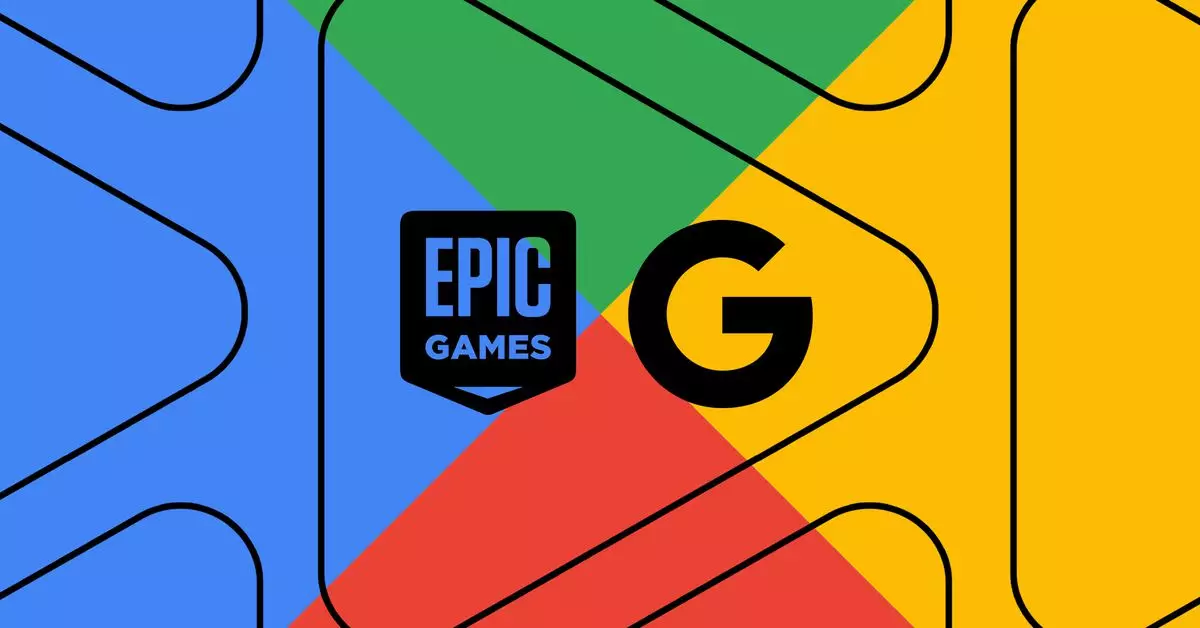In a landmark legal ruling, Judge James Donato has ordered Google to dismantle its monopolistic practices surrounding the Google Play Store, setting a precedent for greater competition in the app marketplace. The verdict emerged from the high-profile case Epic Games brought against Google, alleging that the tech giant stifled competition through anticompetitive behaviors. This decision not only impacts Google but also opens the door to a more diverse and competitive ecosystem for app developers and consumers alike.
Epic Games, known for its mega-hit Fortnite, initiated the lawsuit back in August 2020, aiming to challenge Google’s hefty 30% commission on in-app purchases. The case unfolded dramatically as Epic sought to illustrate the unfair advantages Google held, which not only harmed developers but also adversely affected consumers by limiting their choices. The result of the trial, which spanned months of courtroom arguments, ultimately led to a unanimous jury verdict that stood in stark opposition to Google’s operational practices.
Judge Donato’s ruling mandates that for a period of three years, Google must fundamentally change how the Google Play Store operates. This monumental decision compels Google to welcome rival third-party app stores, allowing them to compete on a level playing field within the Google Play ecosystem. Additionally, the ruling requires that developers have the freedom to inform users about alternative payment options, further breaking down the barriers that have historically favored Google’s payment system.
The injunction outlines a timeline, requiring compliance from November 1, 2024, through November 1, 2027. Within that window, Google will no longer be allowed to force developers to use Google Pay Billing. Moreover, developers can now dictate their pricing strategies without succumbing to Google’s commission structure. This could lead to more competitive pricing, ultimately benefiting end consumers.
Moreover, the ruling prohibits Google from engaging in practices that could be classified as coercive or retaliatory. For instance, the company can no longer offer financial incentives to developers to ensure exclusivity with the Play Store or prevent rival stores from being preinstalled on devices. Such moves are viewed as tactics that stifle competition, something that the court has firmly stepped in to eliminate.
Ensuring Safety Amidst Competition
Despite the significant shifts mandated by this ruling, Google will still retain some regulatory powers over the Play Store to ensure safety and security. The court allows Google to implement “reasonable measures” that are essential for maintaining the integrity of the Play Store. However, these measures must not overpower the competitive framework that the court is enforcing.
A Technical Committee composed of representatives from both Epic and Google will oversee any potential disputes arising from these changes, ensuring that the process remains transparent and fair. This collaborative approach is crucial as it seeks to balance Google’s need to ensure a secure platform while also promoting competition.
The implications of Judge Donato’s decision are profound, particularly for app developers who have long felt constrained by Google’s policies. Many developers are likely to embrace the newfound freedom to attract users through alternative payment methods, potentially leading to lower prices for consumers. This shift could foster innovation as developers explore different business models and monetization strategies.
From a consumer standpoint, this ruling heralds a future where app choices are more varied, allowing for a richer app experience. The reduction of Google’s tight grip on app distribution might even lead to a renaissance of app development, as independent developers gain access to vital resources that were previously locked behind Google’s policies.
While Google has indicated plans to appeal the decision, which mirrors the strategy taken by Apple in its ongoing legal battles, the impact of this ruling is already palpable. It represents a critical step toward leveling the competitive landscape of the app economy, pressuring both tech giants to reassess their policies. As this case continues to develop, all eyes will be on how effectively Google adapts to this new framework and how other companies respond in the evolving market.
The landmark ruling against Google in Epic v. Google is an essential chapter in the ongoing discourse about tech monopolies and fair competition. It represents not only a victory for Epic Games but potentially for developers and consumers alike, paving the way for a more equitable app ecosystem.

